Gastric Bypass
What is Gastric Bypass?
Gastric Bypass surgery, also known as Roux-en-Y, is an operation to divide the stomach into two parts of different sizes. After the operation, the upper part of the stomach, which has a smaller size, is directly connected to the small intestine, which triggers weight loss within the body. The operation shifts the regular path of the foods toward the digestive system and by doing so, it not only limits the amount of food consumed but also the number of calories.
How is Gastric Bypass surgery done?
The Gastric Bypass operation can be done with either open surgery, or with a laparoscope, a small camera that enables the surgeon to take a look at the internal organs. In the first one, the belly is cut deeply, while in the latter, there are only tiny slits on the belly to insert the camera.
In both of the operations, the surgeon cuts the stomach into two parts, making the smaller, upper part a “pouch” for the food. This creates an illusion of a smaller stomach as the upper part is not directly connected to the lower part of the stomach. Following this process, the surgeon operates a bypass by connecting the small intestine with the pouch to reduce the soaking up of calories.
Losing weight with Gastric Bypass
Gastric Bypass is highly effective in the process of weight loss as it allows people to eat less and absorb fewer calories. The patients often lose 30-40% of their body weight following the operation, proving that the surgery is valid methodic obesity treatment. Still, the type of surgery and the adopted daily eating practices of the patients become effective in the results. Thus, the amount of weight loss can differ from one patient to another. The operation does not ensure that the patient will never gain weight again though, requiring him/her to be careful with their diet at all times.
The reasons for having Gastric Bypass
Everyone who has a Body Mass Index (IBM) higher than 37, and has no other major diseases that might conflict with the operation can get Gastric Bypass surgery. It not only enables the patients to lose weight, but also diminishes the potential of fatal high-risk diseases including sleep apnea, diabetes, and high blood pressure. The surgery is also proved to be effective in improving fertility and cardiovascular health, reducing depression, and relieving pain. Thanks to these benefits of the operation, many patients, mostly suffering from obesity, lean toward Gastric Bypass surgery.
Before the Gastric Bypass operation
In preparation for the operation, the patients are expected to adopt a daily exercise routine and lose some weight that is determined specifically for each patient by the expert doctor. Another important practice that needs to be adopted by the patient about a month before the operation is to stop consuming liquid with caffeine.
After the Gastric Bypass operation
Following the Gastric Bypass operation, the patients are required to consume liquids solely for a short while. Afterward, the patient is expected to follow a customized diet that includes some solid foods gradually. As the healing process improves, the patient can eat more solid foods. Within approximately 6 weeks, the patient usually becomes able to eat regularly, even though his/her small stomach will not allow him to eat in larger amounts. Nevertheless, heavy foods such as red meat, spicy foods, sugary alcohols, or anything with high fat are often not recommended for the patients that go through Gastric Bypass operation.
Is Gastric Bypass harmful?
Similar to all the surgical operations, the patients may suffer from some complications after Gastric Bypass surgery as well. Still, these complications are often regarded as minor side-effects that can be overcome relatively easily.
What are the risks of Gastric Bypass?
Some of the prominent risks of Gastric Bypass are infection, internal bleeding, anastomosis. dumping syndrome, malnutrition, stomach ulcers, and bowel obstruction.
Frequently Asked Questions
Is Gastric Bypass done to lose weight?
Yes. The operation reshapes the stomach in a way to creates an illusion of a smaller stomach that will consume less food. This process automatically reduces food consumption and by doing so, paves the way for weight loss.
What are the prices of Gastric Bypass operations?
Even though prices of Gastric Bypass operations differ from country to country and hospital to hospital, the average price is often expected to be at around $15.000 - $35.000.
Can you get fat again after gastric bypass?
Despite Gastric Bypass being highly effective in weight loss, the operation does not guarantee the avoidance of weight gain in the future. Therefore, a customized diet and drastic changes in daily life habits are advised for the patients who go through the surgery.
How long does it take to fully recover from gastric bypass surgery?
Although the exact recovery process differs among the patients, it usually takes 3-6 weeks for a patient to fully recover.
Can you ever eat normally after gastric bypass?
Approximately 3 months after the surgery, the patients are usually able to eat in a regular nature even though hydration is heavily encouraged.
Please contact us to get more information on Gastric Bypass operations within minutes.

 Türkçe
Türkçe